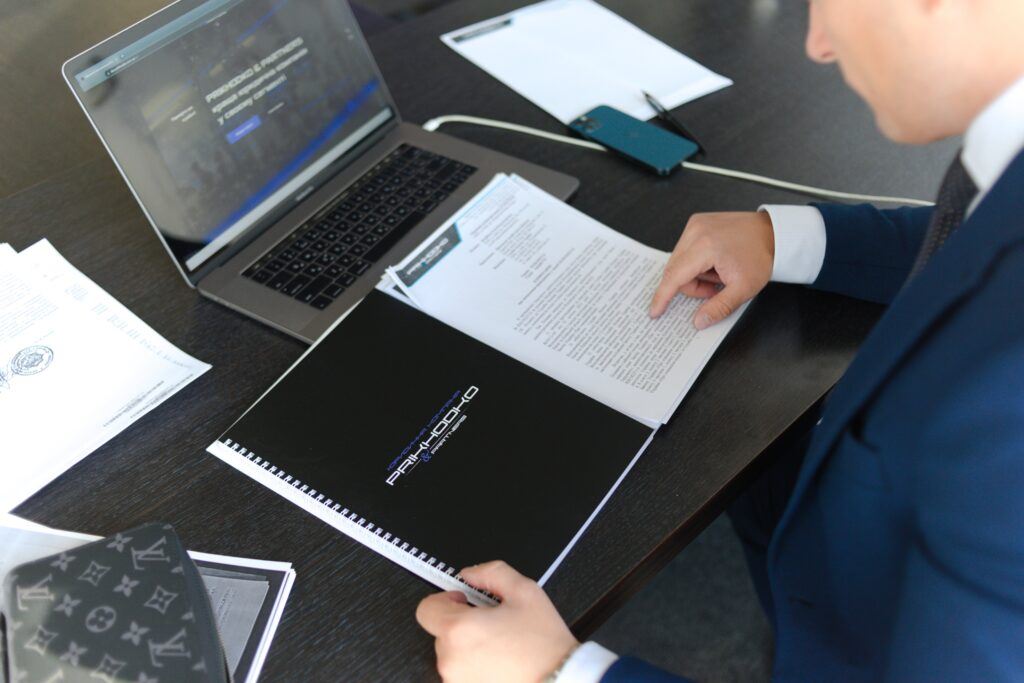
"The right to justice is what we fight for"
Lawyer
Специалист практик миграционного и корпоративного права также специализируется на юридическом сопровождении бизнеса в странах ЕС.
Liquidation of the company in Romania
In Romania, the liquidation procedure is regulated by several pieces of legislation that define the steps and requirements for closing a company.
Liquidation of the company may be caused by various factors, including:
- Financial difficulties. The company cannot fulfill its financial obligations.
- Expiry of activity. If the company was created for a certain period, after its expiration, a decision on liquidation may be made.
- Voluntary decision of shareholders. Owners may decide to close the business for other reasons.
- Judgment. In case of bankruptcy or other legal matters.

The main legislative acts that regulate the liquidation process in Romania are:
- The Commercial Code of Romania – regulates the general provisions on companies and their liquidation.
- Bankruptcy Law – defines procedures and requirements in case of bankruptcy of a company.
- The Tax Code – establishes tax requirements and obligations of companies during liquidation.
There are two main types of liquidation in Romania:
- Voluntary liquidation – initiated by shareholders and or partners of the company.
- Compulsory liquidation – initiated by the court in case of bankruptcy or other legal grounds.
Voluntary liquidation procedure:
- Making a decision on liquidation.
Voluntary liquidation begins with a decision by the company’s shareholders or partners. This decision must be approved at the general meeting, and the minutes of the meeting must be notarized.
- Appointment of liquidator.
The next step is the appointment of a liquidator, who will be responsible for carrying out all the necessary procedures. The liquidator can be an individual or a legal entity that has the necessary qualifications.
- Post a message.
After the appointment of the liquidator, a notice of liquidation must be published in the Official Journal of Romania and local newspapers. This gives creditors the opportunity to present their claims to the company.
- Compilation of liquidation balance sheet.
The liquidator is obliged to draw up a liquidation balance sheet, which includes all assets and liabilities of the company. The balance sheet must be approved by the shareholders.
- Distribution of assets.
After approval of the liquidation balance sheet, the liquidator distributes the company’s assets among creditors and shareholders according to their rights.
- Closing of registration.
The last step is to submit an application for closing the company to the Trade Register. After that, the company is considered liquidated.
Compulsory liquidation procedure:
- Filing a bankruptcy petition.
Compulsory liquidation usually begins with filing a bankruptcy petition with the court. This can be done both by the company itself and by creditors.
- Appointment of a court administrator.
The court appoints a judicial administrator who will manage the bankruptcy and liquidation procedure.
- Holding meetings of creditors.
The court administrator convenes a meeting of creditors where they can present their claims and decide on the distribution of assets.
- Sale of assets.
The company’s assets are sold at auction or through other court-approved procedures to pay off obligations to creditors.
- Completion of the procedure.
After the distribution of all assets and repayment of liabilities, the court issues a decision to close the company.

It is also important to understand that during liquidation, the company must fulfill all tax obligations to the state. This includes filing tax returns and paying all taxes and fees.
Failure to comply with these requirements may result in additional fines and sanctions.
After completion of the liquidation procedure, the company is considered dissolved and its legal existence ceases. All the company’s liabilities are considered to be paid off, and its assets are distributed among creditors and shareholders.
At the same time, there are special cases when the liquidation procedure can be changed or supplemented with additional steps. For example, in the case of multinational companies, there may be additional requirements for the liquidation of assets abroad.
Calculate the cost of services
1 question
Do you have an active business in Romania?
2 question
Do you need help in preparing documents for liquidation?
3 question
Do you need legal support for the liquidation of your company in Romania?

Специалист практик миграционного и корпоративного права также специализируется на юридическом сопровождении бизнеса в странах ЕС.
TOP lawyers dealing with such cases in Ukraine
How to order the service? How do we work?
If you need to open a bank account in a foreign bank, or you need to register a company in a foreign country or a legal service for your business abroad, fill out an application on the website, or call for the specified phone numbers.
- Application
- Calling a lawyer
and defining tasks - Contract and payment
- Consultation,
case analysis, specialist work
What is the price for a lawyer's consultation and assistance?
Price for services in the "International corporate law" category:
| The name of the service | Price, UAH | Terms |
|---|---|---|
| Tax consultation in Europe | from $200 | from 1-2 days |
| Opening an account in a foreign bank | from $250 | from 3 days |
| Liquidation of a company (firm) in Europe | from $1000 | from 7 days |
| REGISTRATION OF BUSINESS IN EU COUNTRIES | from $1000 | from 7 days |
| Sale of ready-made companies | from $1000 | from 3 days |
You may also need:
Business scaling and migration
REGISTRATION OF A BUSINESS (FIRM) IN THE UK
Read moreFintech
OPENING A BANK ACCOUNT FOR A GAMBLING BUSINESS
Read moreBusiness scaling and migration
OPENING A BANK ACCOUNT IN AUSTRIA
Read moreBusiness scaling and migration
OPENING A BANK ACCOUNT IN GERMANY
Read moreIntellectual property
Brand name registration
Read moreFintech
BANK REGISTRATION IN CYPRUS
Read moreFintech
Opening a bank account for a crypto business
Read moreBusiness scaling and migration
OPENING A BANK ACCOUNT IN ESTONIA
Read moreCorporate law
Opening an account in a foreign bank
Read moreBusiness scaling and migration
REGISTRATION OF A BUSINESS (FIRM) IN THE UAE
Read moreBusiness scaling and migration
REGISTRATION OF A BUSINESS (FIRM) IN POLAND
Read moreBusiness scaling and migration
OPENING A BANK ACCOUNT IN GREAT BRITAIN
Read moreArticles on the topic:
call back
during the day











